Chemistry and Biochemistry Department Instrumentation
Students gain hands-on experience with state-of-the-art modern instrumentation that prepare graduates to excel in a wide range of professional fields.
Bruker 400 MHz Advance III HD Nuclear Magnetic Resonance (NMR) Spectrophotometer.
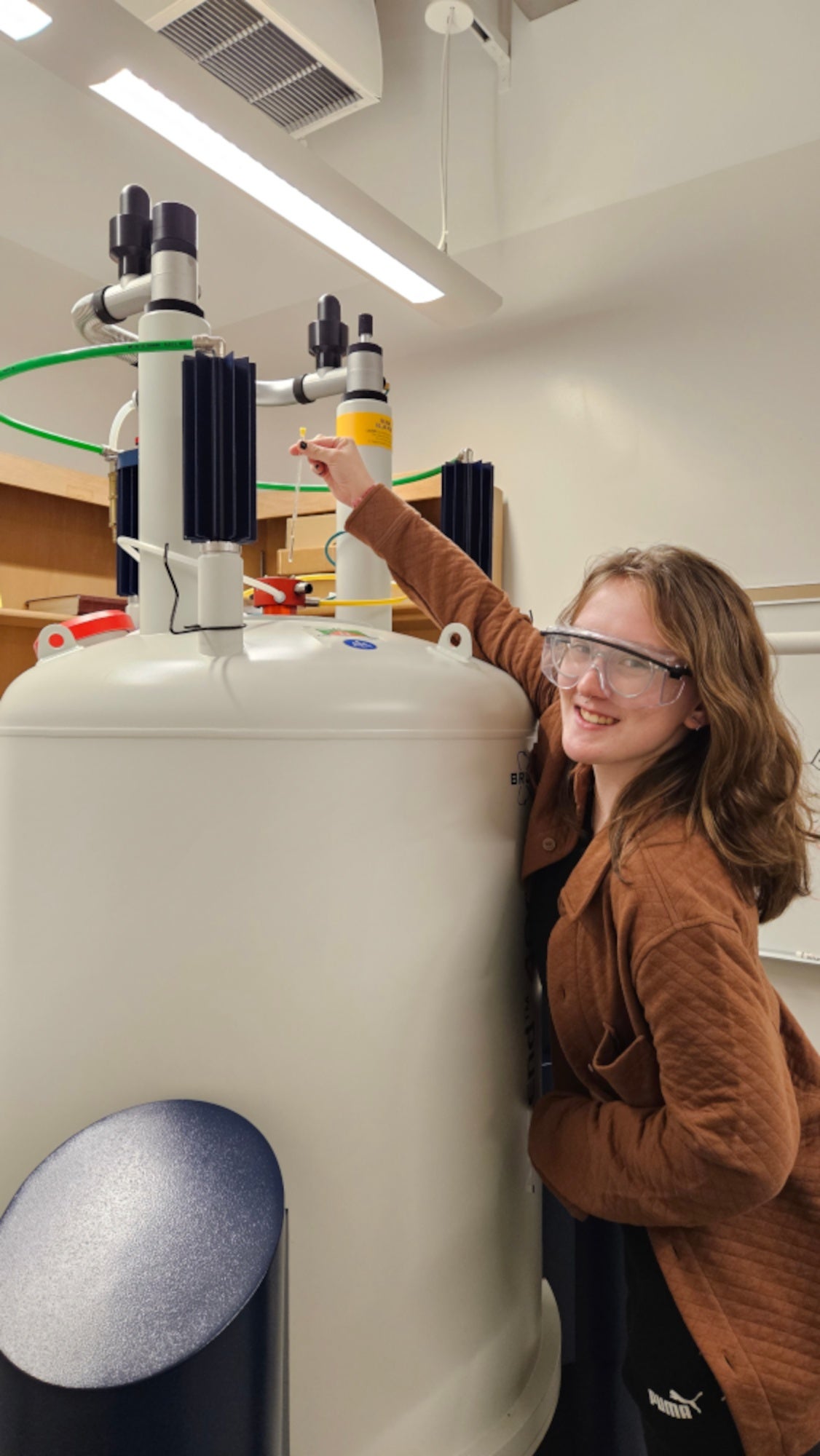
Students will use this instrument in Organic Chemistry lab, Instrumental Analysis lab, Synthesis and Characterization lab, and in Independent Research Projects to identify the content and molecular structure of a sample.
Agilent 6890 series Gas Chromatograph with an Agilent 5973 Mass Selective Detector (GC-MS)
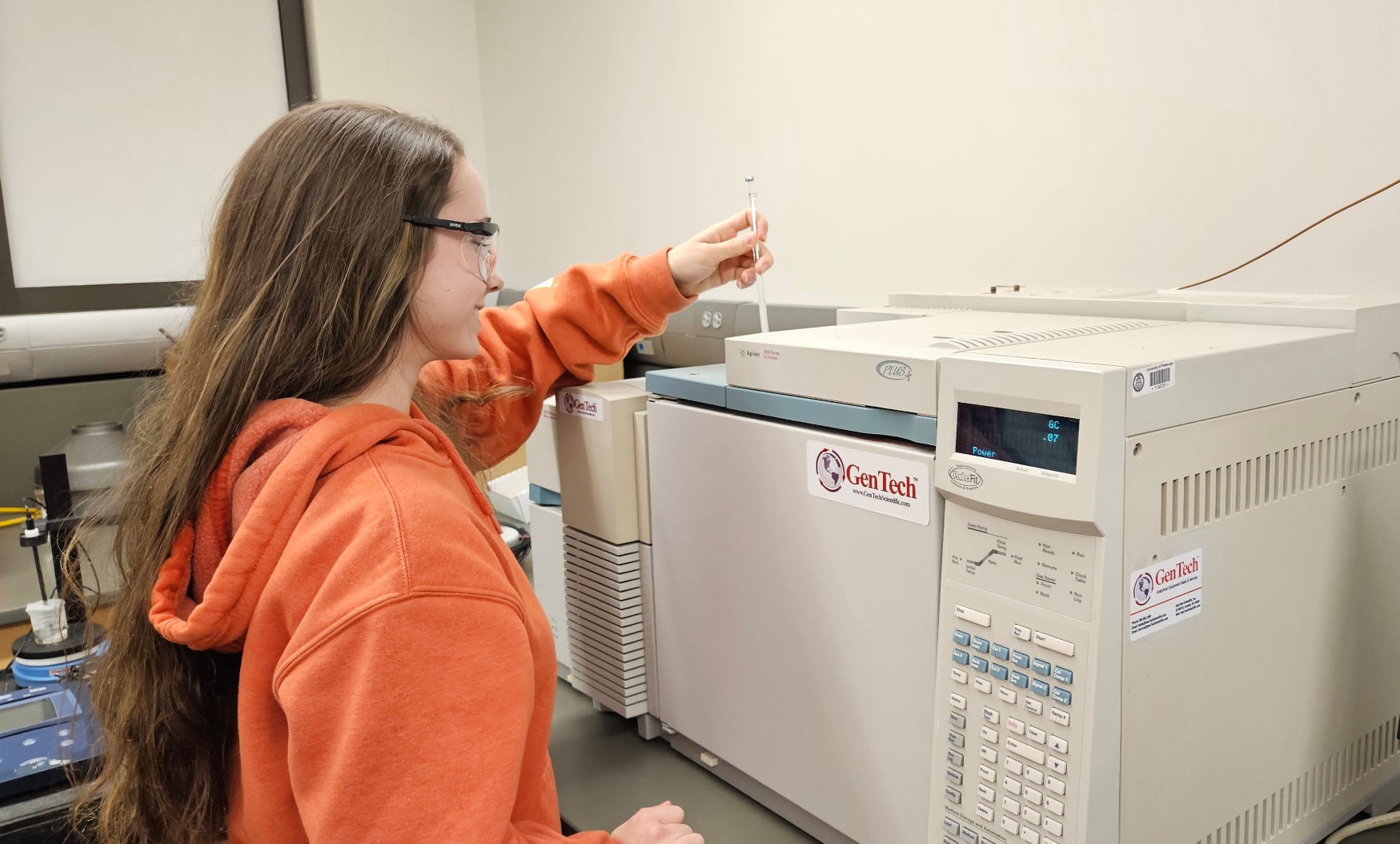
Students will run samples on this instrument in Instrumental Analysis lab, Physical Chemistry lab, and in Independent Research Projects to identify and quantitate the chemical composition of an unknown mixture.
PerkinElmer Spectrum Two Fourier Transform Infrared Spectrometer with an Attenuated Total Reflectance probe (FTIR-ATR)
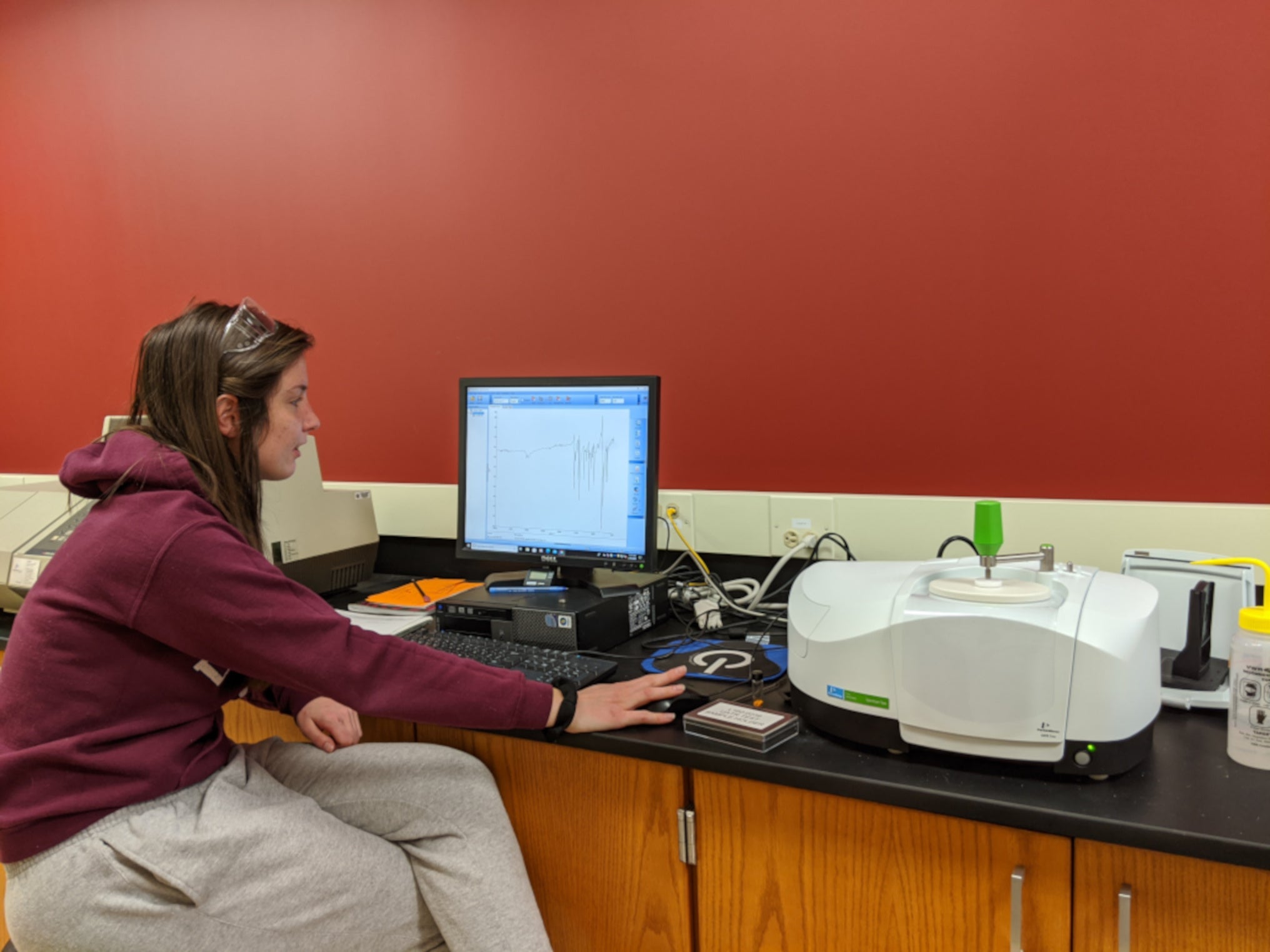
This instrument is run by students in Organic Chemistry, Instrumental Analysis, Synthesis and Characterization lab, Physical Chemistry lab, and in Independent Research Projects to collect vibrational spectra of molecules to determine their structure and identity.
Agilent 8452A UV/vis Spectrometer
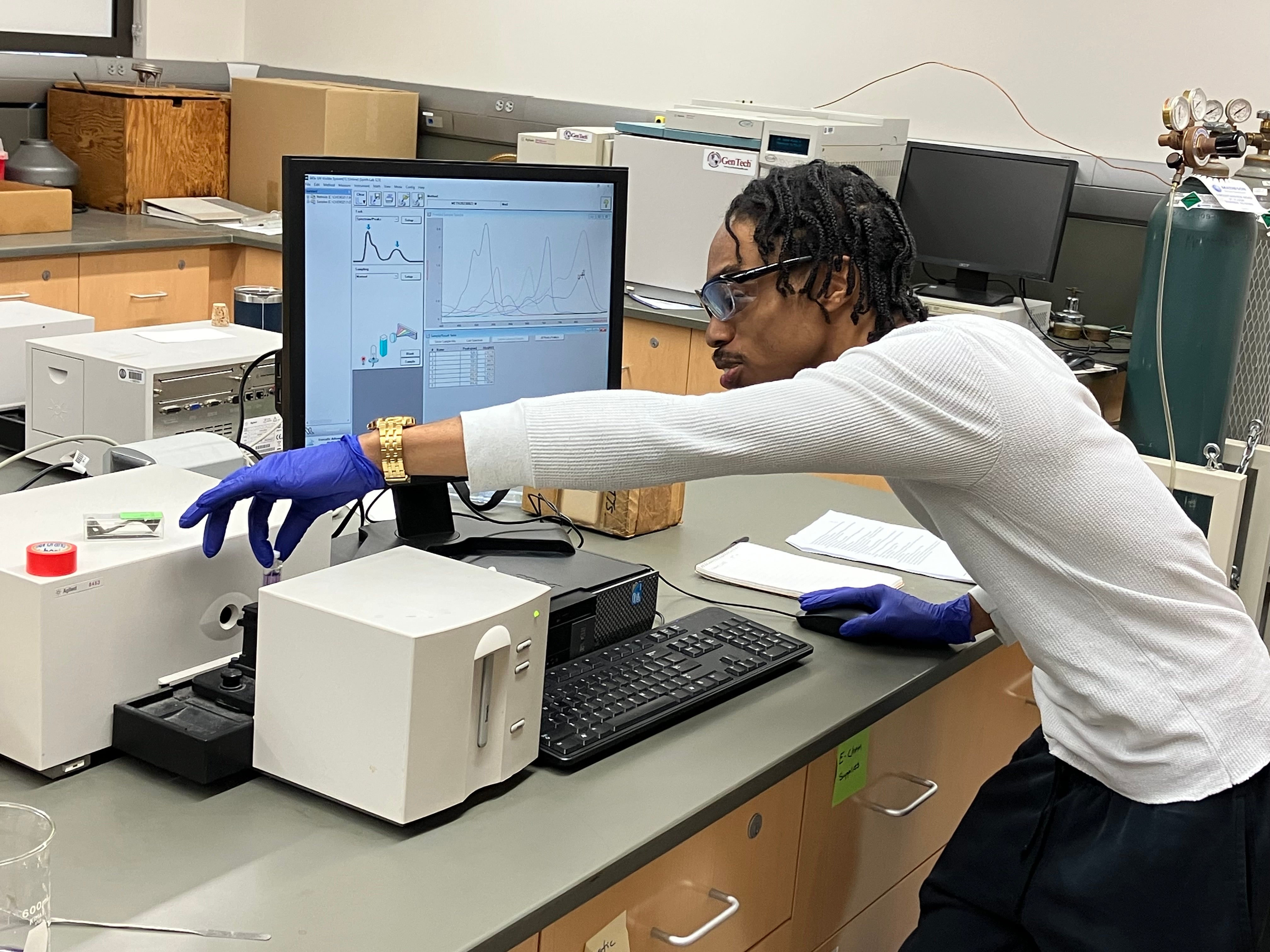
Students use this instrument to collect the electronic spectra of molecules in the ultraviolet and/or visible range to identify and quantitate known and unknown samples in Instrumental Analysis, Synthesis and Characterization lab, Physical Chemistry lab, and in Independent Research Projects.
Agilent 1100 series High Performance Liquid Chromatograph (HPLC) with a binary pump and diode array detector
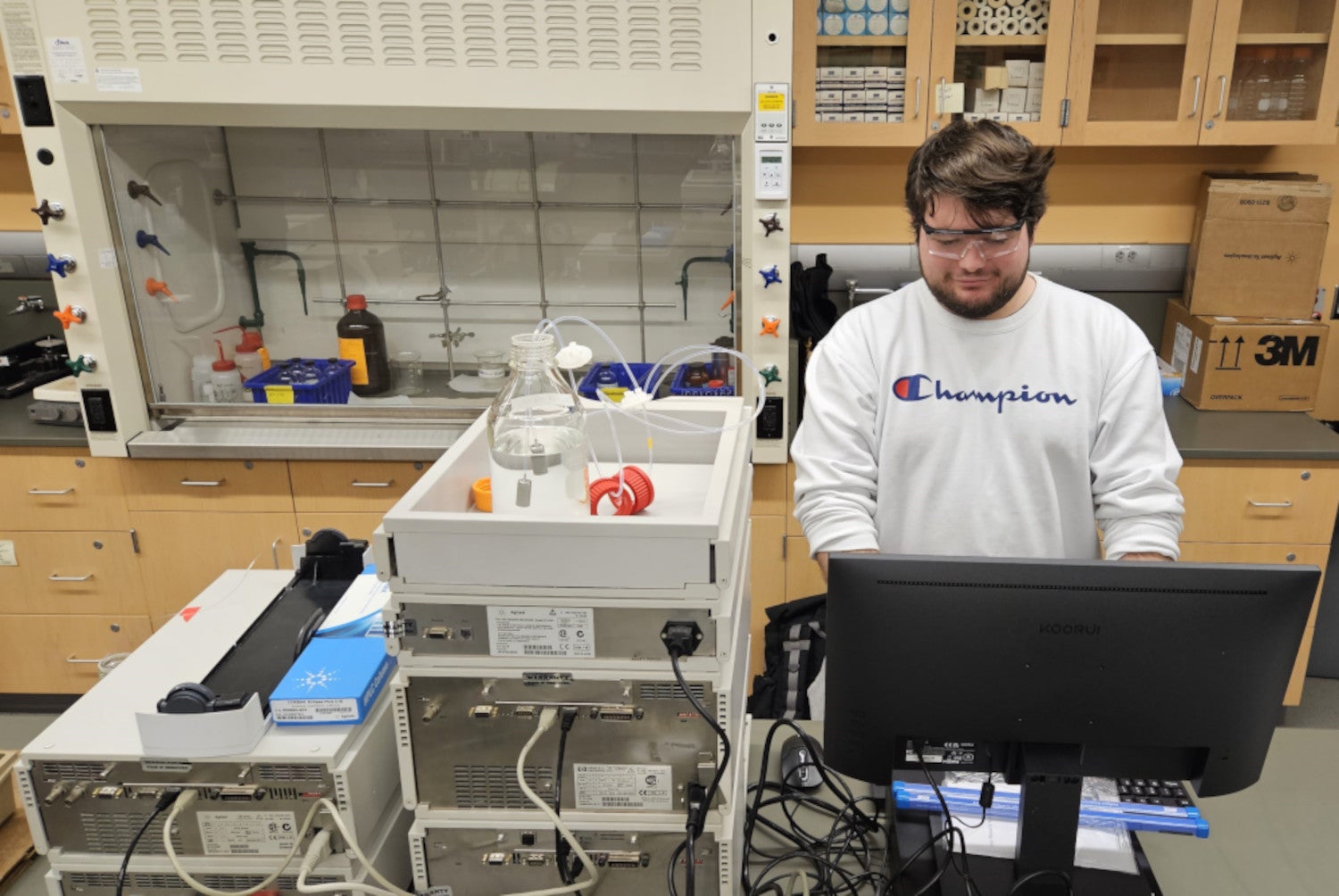
This instrument is run by students in Instrumental Analysis lab, Physical Chemistry lab, and in Independent Research Projects to separate, identify, and quantitate the chemical composition of an unknown mixture.
CFX Connect qPCR instrument
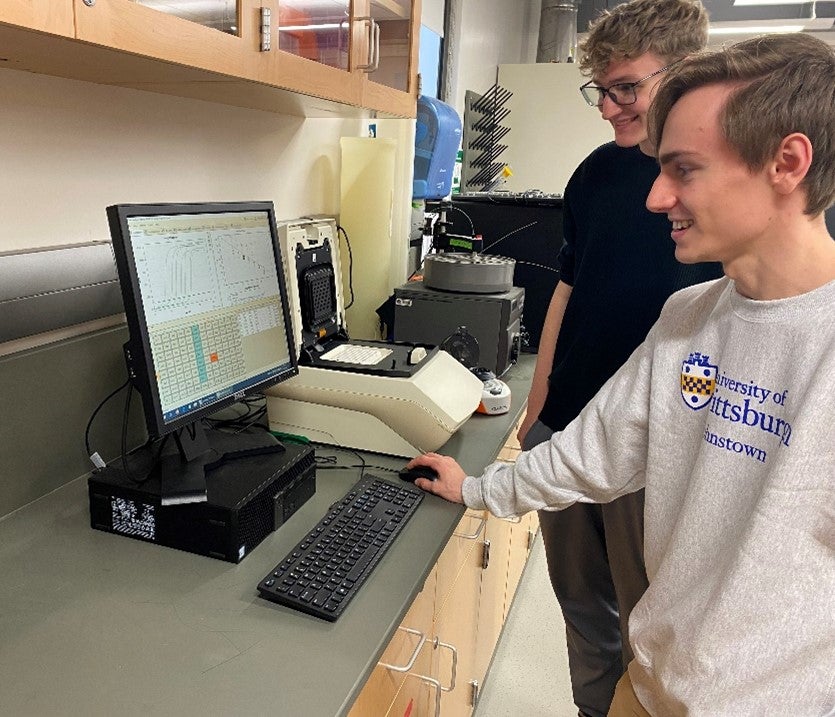
Students use this instrument in Biochemistry lab and in Independent research projects to perform quantitative (or real-time) polymerase chain reactions (qPCR or RT-PCR). This allows detection of the relative quantities of nucleic acid sequences in a variety of biological samples.
Anton Paar Microwave Reactor

Students use this instrument in Organic lab and in Independent research projects to control chemical reactions more efficiently, to improve reaction rates and yields, and to develop more environmentally friendly processes.
